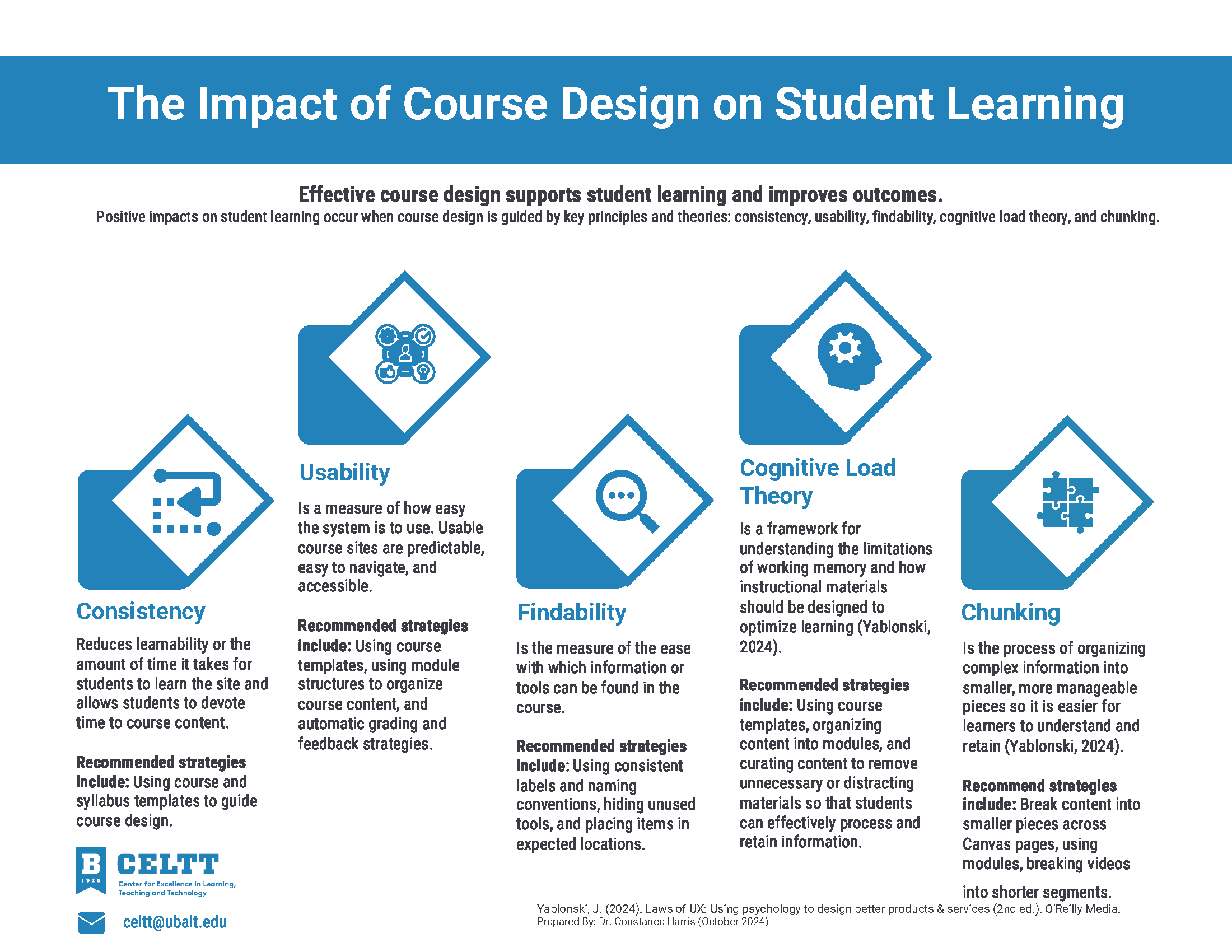The Modular Approach
Course design at UBalt is evolving, and our focus on student success has led us to explore how design choices impact learning through a user experience (UX) lens. CELTT conducted research to ensure our course structures support student engagement and comprehension in meaningful ways.
Our literature review revealed that principles like cognitive load theory, chunking, and flow are essential to effective course design. Reducing cognitive overload helps students process information more efficiently, while chunking breaks content into manageable units, making complex material easier to absorb. Flow theory emphasizes creating a seamless and engaging experience that keeps students motivated and focused. These insights underscore the value of the Modules feature in Canvas, which organizes content into structured, easy-to-navigate segments that align with these design principles. Additionally, the research highlighted the importance of consistency, usability, and findability, further reinforcing the benefits of a well-designed, modular approach.
To help faculty visualize these findings and implement best practices, we’ve created a UX infographic that outlines key design strategies. We encourage you to explore the infographic to see how these principles can transform your course design and better support our students’ learning experiences.


